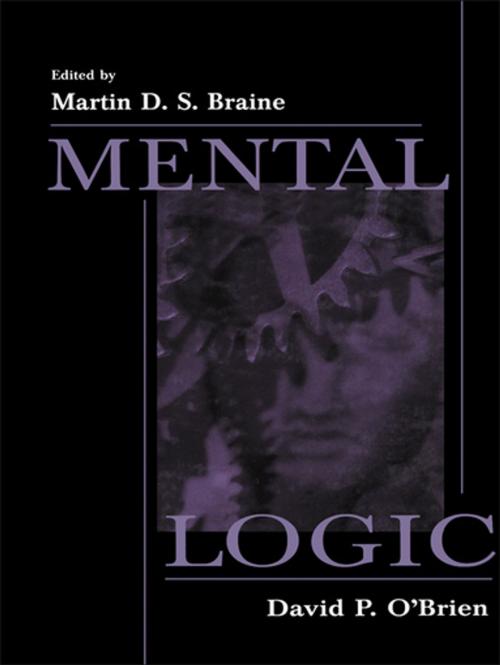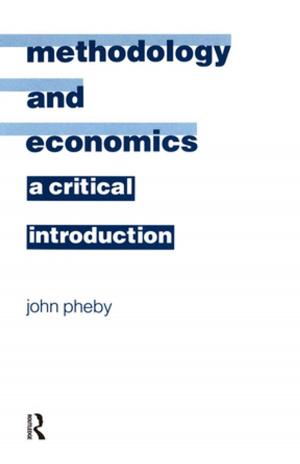| Author: | ISBN: | 9781135689162 | |
| Publisher: | Taylor and Francis | Publication: | April 1, 1998 |
| Imprint: | Psychology Press | Language: | English |
| Author: | |
| ISBN: | 9781135689162 |
| Publisher: | Taylor and Francis |
| Publication: | April 1, 1998 |
| Imprint: | Psychology Press |
| Language: | English |
Over the past decade, the question of whether there is a mental logic has become subject to considerable debate. There have been attacks by critics who believe that all reasoning uses mental models and return attacks on mental-models theory. This controversy has invaded various journals and has created issues between mental logic and the biases-and-heuristics approach to reasoning, and the content-dependent theorists. However, despite its pertinence to current issues in cognition, few cognitive scientists really know what the mental-logic theory is, and misapprehensions are prevalent. This volume is a comprehensive presentation of the theory of mental logic and its implications for cognition and development, including the acquisition of language.
The theory offered here has three parts. Part I is the mental logic per se that contains a set of inference schemas. Part II is a reasoning program that applies the schemas in lines of reasoning, including a direct-reasoning routine and more sophisticated indirect-reasoning strategies. Part III of the theory is pragmatic, proposing that the basic meaning of each logic particle is in the inferences that are sanctioned by its inference schemas.
Over the past decade, the question of whether there is a mental logic has become subject to considerable debate. There have been attacks by critics who believe that all reasoning uses mental models and return attacks on mental-models theory. This controversy has invaded various journals and has created issues between mental logic and the biases-and-heuristics approach to reasoning, and the content-dependent theorists. However, despite its pertinence to current issues in cognition, few cognitive scientists really know what the mental-logic theory is, and misapprehensions are prevalent. This volume is a comprehensive presentation of the theory of mental logic and its implications for cognition and development, including the acquisition of language.
The theory offered here has three parts. Part I is the mental logic per se that contains a set of inference schemas. Part II is a reasoning program that applies the schemas in lines of reasoning, including a direct-reasoning routine and more sophisticated indirect-reasoning strategies. Part III of the theory is pragmatic, proposing that the basic meaning of each logic particle is in the inferences that are sanctioned by its inference schemas.















